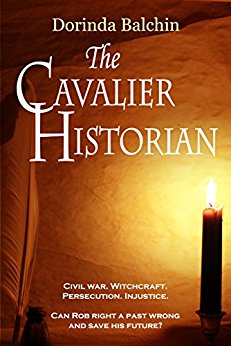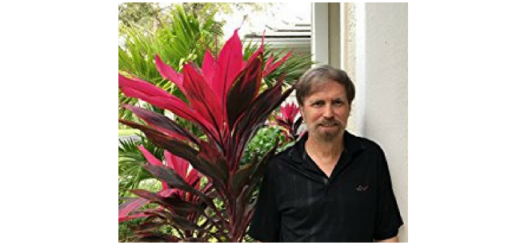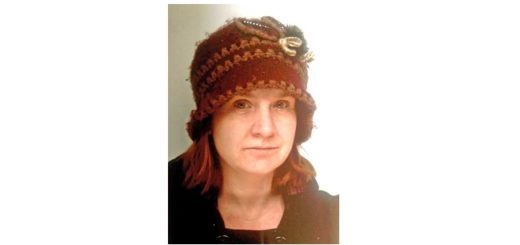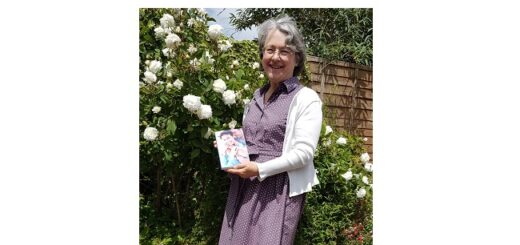The Writing Life of: Dorinda Balchin
Dorinda Balchin
This week on ‘The Writing Life of:‘ I am thrilled to be interviewing author Dorinda Balchin. Dorinda will be sharing with us details of her writing life, telling us all about her latest book ‘The Cavalier Historian’, which was released on 1st November 2016, and answering a few fun questions too.
So without further ado I’ll hand you over to Dorinda. Post contains affiliate links.
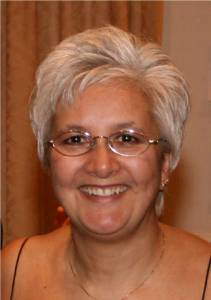
Born in England in 1957 Dorinda Balchin graduated from Warwick University in 1980 and began a career in teaching. Books and writing had always been a passion for her, but with two children to raise and a demanding career in the field of education Dorinda’s love of literature was mainly confined to reading with little time to explore and develop her writing.
Then in 2008, along with her husband, Dorinda gave up her teaching career and made a life-changing move to southern India where the couple now run a guesthouse.
This change of lifestyle has allowed Dorinda the time to develop some of the writing projects which she has worked on over the years. Her love of history is clearly reflected in her well researched novels which draw you into another time and place peopled with believable characters with all the strengths and weaknesses which we recognise in ourselves.
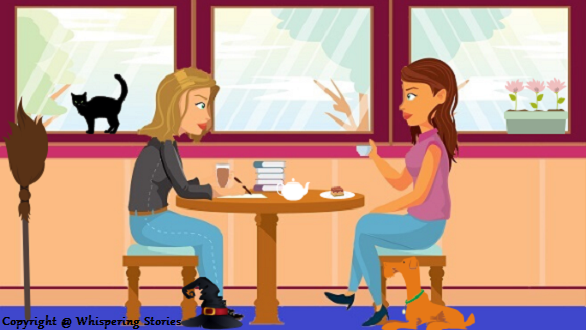
1) As a child what did you want to do when you grew up?
For a couple of years I wanted to be an air stewardess so that I could see the world, then I wanted to be a teacher.
2) Who were your favourite childhood authors?
I was a voracious reader so the list is endless, some of my favourites as I grew started with Enid Blyton, Elinor Brent-Dyer (The Chalet School), Frances Hodgson Burnett (The Secret Garden etc) then progressing to C S Lewis (the Narnia stories and the Dr Ransom space trilogy) and Tolkein (The Hobbit).
I also went through a science fiction period with authors like Arthur C Clarke and Harry Harrison, as well as loving books about animals including Black Beauty by Anna Sewell and Joy Adamson’s books about Elsa the lioness.
3) At what point in your life did you realise you wanted to be a writer?
I started writing stories when I was about 6 or 7 but never felt my work was good enough to be published. Lack of confidence kept me from pursuing writing as a career for over 40 years!
4) How did you go about following that dream?
I wrote the original draft of Heronfield during a career break while I was looking after my young children. When they went to school I went back to teaching and the manuscript was put on a shelf. It was only when I moved to India to run a guesthouse that I had the time to edit and try to find an agent.
That proved rather difficult from India so I took advantage of the newly-emerged opportunities to self-publish. I would encourage anyone who wants to write to follow their dream, no matter how long it takes!
5) What is your writing day like? Do you aim for a certain amount of pages or words before you stop for the day?
I look after my grandson before and after school and also during the holidays so writing is fitted in around him! When not researching I like to try to write between 1,500 and 2,000 words a day. It doesn’t sound much but I like to have a target which is achievable with all my other commitments.
I tend to write in the morning otherwise I find that time slips away and I get nothing done!

View from where Dorinda writes
6) Did you ever consider writing under a pseudonym?
Not for historical fiction, but if I ever write about my life in India I might do so.
7) Do you have any strange habits before starting, or whilst in the midst of writing?
Not that I’m aware of! The only thing I always do before writing is disconnect from the internet so that I’m not distracted by incoming messages, although I do connect to do online research while writing.
8) Do you write longhand, typewriter, or on a computer?
On the computer. I tend to edit as I go (hence only 1,500 – 2,000 words a day). It’s much easier to go back and change a bit, or to move a paragraph to a different section if I’m working on a computer.
9) How many books have you written? Do you have any unpublished work?
I have three published novels. There is no completed unpublished work (most of what I wrote when I was younger found its way into the recycling, which is not a bad thing). I have a number of ideas I’ve started on but probably won’t finish.
10) Are you a plotter or a pantser?
Definitely a plotter. As my novels tend to follow a strict timeline e.g. the English Civil War, I have to know where my characters and story are going. I have an excel file with the real events in one column and the storylines for each of my main characters in their own columns. Things may change a little as I write but I always start with a beginning, middle and end in mind.
11) Do you read all the reviews left for your book(s)?
I do read them all. It’s lovely to get great reviews but if I get a negative comment I try to find something in it which can help me improve my writing. That doesn’t mean it doesn’t hurt, but all authors need to have a thick skin and remember that we can’t please everyone.
Concerning your latest book:
Pages – 385
Release Date – 1st November 2016
ISBN-13 – 978-0957421851
Format – ebook and paperback

Civil war. Witchcraft. Persecution. Injustice. Can Rob right a past wrong and save his future?
Marston Manor is an old manor house in Oxfordshire which the new owner plans to turn into a ‘themed’ attraction based on the period of the English Civil War. He calls in an historian, Robert Hardwick, to help set up the project, and Robert is delighted to discover a family link with Marston Manor dating back to the time of King Charles I and the witch persecutions of the 17th century.
But right from the start disturbing events raise mistrust and fear on the estate. Who, or what, is trying to halt the plans for the Manor? Can the disruption and sabotage be linked to the traveller camp in the woods or to the more sinister appearances of a ghostly old woman? And just who is Rebekah, and why does she have such a hold over Rob?
In his haunted dreams Rob finds himself living through the turbulent years of the English Civil War, experiencing it all through the eyes of his ancestor, Simon. Dreams which begin gently enough in the days leading up to war in 1642 but which become ever more frightening, ending with the terrifying events of the witch trials of 1651.
12) How long did it take you to get from the idea’s stage to your date of publication?
I had the idea for The Cavalier Historian many years ago but did nothing about it for some time. Once I began to work on it seriously I spent about six months researching and eighteen months writing (at the same time as running the guesthouse in India).
Editing and proof-reading took about six months. As I self-publish I then had to format the book and design a cover so, in all, it was about three years from start to finish.
13) How did you come up with the names for your characters?
For the sections which are set during the civil war I looked at lists of names from the seventeenth century, for the modern section I looked at similar lists for the last thirty years. I try to have characters with different initial letters as readers are less likely to be confused by similar sounding names; the only instance when I varied this was with a father and son both called Thomas as that would have been the norm in the mid-1600’s.
14) Can you give us an insight into your main character(s) life?, What makes them tick?
The Cavalier Historian is set during two time periods, the present and the English Civil War.
Rob is a historian in the present day. He has a passion for history, particularly the period of the English Civil War, and wants to pass this on to others. He sees himself as a pretty straightforward kind of person, so when he begins to have incredibly realistic dreams about one of his ancestors he begins to worry about his sanity.
Simon (Rob’s ancestor) is a boy at the outbreak of the English Civil War. He is desperate to become involved and is envious of his brother who goes to fight in the king’s cavalry. Simon has to grow up fast, taking on responsibility for the family manor at an early age; his driving force in this section of the story is to make his father proud of him. As the war comes to and end Simon’s focus turns to Rebekah and his relationship with her. He wants to see the changes promised by Cromwell come about as they would enable him to be with someone who would otherwise be deemed unsuitable.
Rebekah is the link between present and past. A young woman who seems old beyond her years she is caring, compassionate, strong-willed and yet vulnerable. It is the enigmatic Rebekah who seems to have the answers to Ron’s questions about his haunted dreams.
15) Which was your hardest scene to write?
Without giving too much away (no spoilers!) it was a couple of the scenes towards the end where Simon and Rebekah’s relationship is finally played out. They are very emotional sections yet have to be rooted in historical fact; it was a fine balance but I am pleased with the result.
16) How did you come up with the title of your book?
Hours of playing around with ideas and words. As it is a dual time-line novel the words time, cavalier, dream, past etc. featured heavily but seemed to lean too much towards the lighter historical romances which this is not. In the end I decided that my two main characters (Simon and Rob) were a cavalier and an historian so the title could bring them both together as well as portraying a little of Rob’s changing attitude towards his girlfriend which could be described as cavalier.
I think The Cavalier Historian is intriguing yet true to the novel’s themes.
17) Did you get a family member/friend to read your work before sending to the publishers?
No, it went to my proof-reader straight from my laptop. She is very skilled and has helped me with my previous two novels. I trust her judgement so was very happy with her feedback.
18) What process did you go through to get your book published?
A I self-publish getting the finished book ‘out there’ takes less time than if I were using a traditional publisher. Proof-reading is key to providing a professional product so that was the first step.
Next was designing the cover. The stage that always takes longer than expected was formatting the novel for e-books and print on demand; I can manage the text myself but don’t know what I’d do without my friend who formats the cover image for me. So, from my last edit to publication took about six months.
19) What did you do once you had written the final word in your book?
Had a glass of wine. Then I put the book away for a few months before going back to edit it with a fresh eye. Once that was done – another glass of wine!
20) What’s next for you, writing-wise?
A series of books about a female war correspondent. I have already begun work on the first book which is set in North Africa during the Second World War.
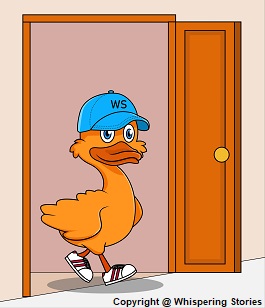
1) What’s your favourite food?
Strangely for someone who lived in India for a number of years I love Chinese food. Something with prawns and noodles always goes down well, or maybe duck.
2) If you had a box of crayons and you could only choose one, which colour would you choose?
Yellow, but don’t ask me why!
3) What movie could you watch over and over again?
If only one it would have to be something that I could enjoy no matter what my mood and leave me feeling good, so it would have to be the timeless 1946 classic ‘A Wonderful Life’.
4) What would be the top song on your playlist?
What I listen to depends on my mood, if only one I’d go for ‘Don’t Go Breaking My Heart’ by Elton John and Kiki Dee simply because this was on the radio all the time during the long hot summer of 1976. That was when I met my husband, left school, moved away from home and started university; an amazing time of friendship and new beginnings for me and I can hardly believe it was over 40 years ago!
5) If you won millions, what would be your first purchase?
A two seater convertible.
6) A talking duck walks into your room wearing a baseball cap and sunglasses, whats the first thing he says to you?
“I’m not Chinese!” (see the answer to question 1 of this section!)
You can find out more about Dorinda by visiting her website/social media sites below.
www.dorindabalchin.com
@DorindaBalchin
Facebook
Goodreads

